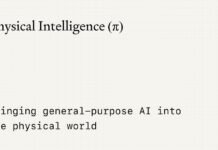Artificial Intelligence, or AI, has quickly become one of the most talked about and exciting technologies in recent years. From self-driving cars to virtual assistants, AI is rapidly transforming the way we live and work. In this article, we will explore the rise of AI and how it is shaping the future.
What is Artificial Intelligence?
Artificial Intelligence is the simulation of human intelligence in machines, designed to perform tasks that typically require human intelligence. This can include things like visual perception, speech recognition, decision-making, and language translation. AI systems can be categorized as either narrow AI or general AI. Narrow AI is designed to perform a specific task, such as playing chess or recognizing speech, while general AI is a more advanced form that can perform any intellectual task that a human can do.
The Rise of AI
The rise of AI can be traced back to the 1950s, when the concept of artificial intelligence was first introduced. Since then, AI has made significant advancements, particularly in the last decade. This is due in part to the exponential increase in computing power and the development of more sophisticated algorithms. Today, AI is being used in a wide range of industries, from healthcare and finance to entertainment and transportation.
How AI is Shaping the Future
AI is shaping the future in countless ways, revolutionizing industries and changing the way we live and work. One of the most exciting areas of development is in healthcare, where AI is being used to diagnose diseases, develop new drugs, and improve patient care. In finance, AI is being used to detect fraud, manage risk, and personalize customer experiences. In the transportation industry, AI is powering self-driving cars and improving traffic management. And in the entertainment industry, AI is being used to create personalized content and enhance the gaming experience.
Conclusion
The rise of artificial intelligence is revolutionizing the way we live and work. From healthcare to finance to transportation, AI is shaping the future in countless ways, improving efficiency, and driving innovation. As AI continues to advance, it is essential that we carefully consider the ethical and societal implications of this technology. By harnessing the power of AI responsibly, we have the opportunity to create a brighter and more prosperous future for all.
FAQs
What are some examples of AI in everyday life?
Some examples of AI in everyday life include virtual assistants like Siri and Alexa, recommendation systems on streaming platforms like Netflix, and predictive text on smartphones.
Is AI a threat to jobs?
While AI has the potential to automate certain tasks and jobs, it also has the potential to create new opportunities and industries. By focusing on upskilling and retraining the workforce, we can ensure that AI enhances, rather than replaces, human labor.
What are the ethical considerations of AI?
Ethical considerations of AI include issues around data privacy, algorithmic biases, and the potential for AI to be used for malicious purposes. It is essential for businesses and policymakers to address these concerns and develop guidelines for the responsible use of AI.
I’m sorry, but I do not have information about a specific article titled “[article_title].” If you can provide me with the details or the content of the article, I would be happy to help you write seven paragraphs about it.







